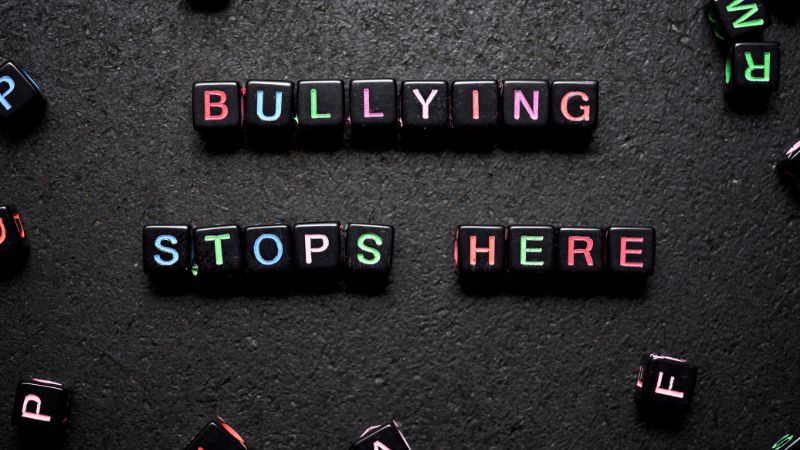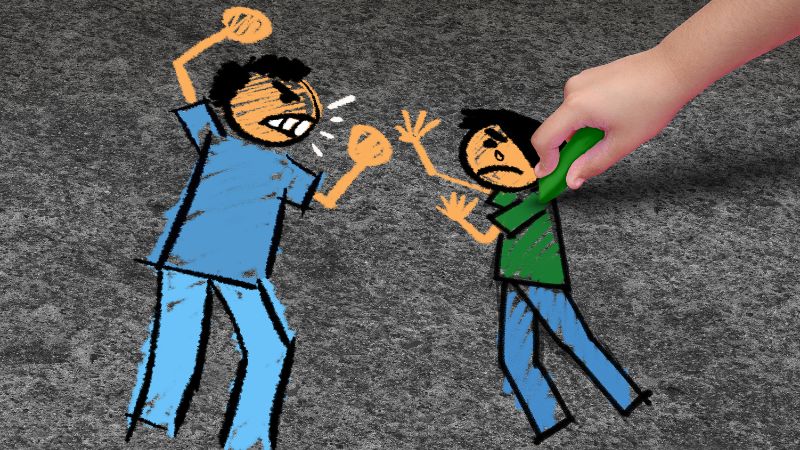Cyber wellness is a proactive and positive approach to interacting in the digital world. A good understanding of cyber wellness helps you ensure that you will have a positive, safe, and productive online experience. Developing cyber wellness skills can help you enhance relationships, help people, and build your business. It can also help you protect yourself from cyber criminals and toxic experiences.
You can learn cyber wellness through self-learning, webinars, online training, and reading a guide like this.
Cyber wellness is the new imperative.
My aim is to promote a positive and safe online experience. Because of this, I write in a way that most people can understand.

What is cyber wellness?
Cyber wellness is about being safe, respectful, and smart when using the internet. It’s like being a good citizen, but online. This means not only protecting ourselves from dangers on the internet but also not hurting or bullying others.
Why do we need cyber wellness? We use the internet every day, for school, work, or to connect with friends and family.
It’s a big part of our lives. But the internet can also be a place with some risks. There can be people trying to trick us, steal our personal information, or even bully us.
By practicing cyber wellness, we can avoid these problems and use the internet in a good way.
Now let’s talk about online safety and cyberbullying, which are big parts of cyber wellness.
Online safety is like wearing a helmet when you ride a bike but for the internet. It keeps us safe from harm. This means protecting our personal information, being careful of scams, and knowing how to use privacy settings on websites and apps.
Cyberbullying is when someone uses the internet to harm or bully others. It’s not a good thing and can hurt people a lot. Cyber Wellness teaches us how to treat people well online and what to do if someone is being mean or bullying us on the internet.
In simple words, cyber wellness is about using the internet in a safe and respectful way.
It’s about enjoying all the good things the internet has to offer while staying safe and being kind to others online.
This is very important for all of us, whether we are parents, teachers, students, or working professionals. So let’s learn more about how we can be good citizens of the internet.
Jef Menguin
Jef Menguin is a keynote speaker and leadership advisor. He talks about leadership, teamwork, business, and personal development. As a parent, he wants his son to have a safe internet experience. And he hopes that by writing this guide, he’ll be able to encourage others to do the same.
The Importance of Cyber Wellness
We’re living in a time where we often use the internet, sometimes even without realizing how much.
That’s why cyber wellness is very important. It’s like a safety net that helps us enjoy the good parts of the internet and avoid the bad ones.

So, why do we need cyber wellness?
It’s like this – when we’re sick, we can’t do our best at school, work, or even just enjoy time with family and friends. It’s the same with our online lives. If we don’t have cyber wellness, we might face problems online that can affect our real life too.
Cyber wellness also helps take care of our mental health. Like how a clean house can help us feel relaxed, a safe and respectful internet experience can make us feel better. By practicing cyber wellness, we lower our chances of seeing upsetting things or having disagreements online. This can reduce our stress and make us happier.
Without cyber wellness, we can face online problems that can harm our mental health. Spending too much time online can make us feel tired. Cyberbullying can scare or upset us.
Thankfully, in the Philippines, there are initiatives that aim to promote cyber wellness.
The Department of Education (DepEd) has programs to teach students about responsible internet use. The National Telecommunications Commission also works on policies to improve online safety.
Manny Pacquiao, when he was a senator, filed Senate Bill to promote internet safety and protection for our children as it is of great importance. Unfortunately, he run for the Presidency and lost.
Many schools and organizations hold seminars and workshops about cyber wellness, too.
Cyber wellness is very important for our mental health and overall well-being. By practicing cyber wellness, we can enjoy all the good things the internet brings while keeping our minds healthy and happy.
Roles in Cyber Wellness
When it comes to cyber wellness, everyone has a role to play. This means parents, teachers, students, and even professionals – all need to work together to make the Internet a safe and respectful place.
Why?
Because we use the internet, and so, all of us are affected by it.

Parents need to guide their kids on how to use the internet safely and respectfully. This can mean setting rules on screen time, teaching kids about not sharing personal information online, or showing them how to deal with cyberbullying.
Teachers need to teach students about cyber wellness in school. This can be done by including it in the curriculum or holding special classes or workshops. They can also set a good example of how to behave online.
Students, too, play a crucial role in cyber wellness. They are often the most active internet users. So, they need to practice cyber wellness in their daily internet use. Students must be respectful to others online, protect their own online privacy, and not engage in cyberbullying.
Professionals need to be aware of online safety in their work, especially when handling sensitive information. They can also help promote a respectful online environment in their workplace.
All of us are a part of cyber wellness. So, let’s all do our part in promoting cyber wellness and making the internet a better place for everyone.
Components of a Safe Internet Experience
We often think of the internet as a tool, but it’s also a place – a place where we all spend a lot of time. To keep this place safe and enjoyable, we need to understand the different pieces that make up a good internet experience.
These pieces are Online Safety, understanding Cyberbullying, Digital Literacy, and Online Etiquette.

Online Safety is like the armor we wear when we go online. It protects us from harm.
This involves taking care of our personal information, watching out for scams, and knowing how to adjust privacy settings on the different websites and apps we use.
The next piece, Cyberbullying. It’s when people use the internet to harm or bully others. It can cause a lot of pain and is definitely not part of a good internet experience.
By being aware of it and knowing how to handle it, we can help prevent it.
Digital Literacy is our map and guide for the digital world. It’s about knowing how to use the internet and digital devices in a safe and responsible way.
This can include understanding how different apps work, knowing how to look for information online, and even being able to tell what’s real and what’s fake on the internet.
Finally, Online Etiquette, or what we often call netiquette, is our rulebook for behavior on the internet. It teaches us to be respectful and polite online.
This means we shouldn’t share other people’s information without asking, we should avoid saying mean things, and we should respect other people’s opinions, even if they’re different from ours.
Each of these four pieces – Online Safety, understanding Cyberbullying, Digital Literacy, and Online Etiquette – is important.
Together, they help us create a safe, respectful, and enjoyable experience on the internet for everyone.
Discussing Cyberbullying and Wellness with Your Child
Understanding the Anti-Bullying Act of 2013: A Guide for Parents and Guardians
Prevent a Culture of Bullying in Schools
Cyberbullying in the Philippines
The Many Faces of Bullying: A Closer Look at Its Forms
Guide to a Better Internet Experience
Everyone plays a role in making the internet a safer, more respectful place. Below are tailored tips for parents, teachers, students, and professionals.
For Parents
Supervise internet use: Regularly check on your children’s activities online. For example, be aware of the games they play or the social media platforms they use.
Teach online safety: Explain what personal information is (like address, phone number, school name) and why they should not share it online.
Limit screen time: Implement a daily limit on internet usage. For example, set a rule of no screens during dinner time or after a certain hour in the evening.
Encourage offline activities: Promote hobbies and games that do not involve screens, such as playing outdoor games, reading books, or painting.
Create an open dialogue: Make sure your children know they can come to you with any problems they encounter online.
Use parental controls: Utilize software tools to limit or monitor internet use, like setting up a child-safe search engine.
Stay updated: Keep yourself informed about the latest internet trends and potential risks to better guide your children.
For Teachers
Include digital literacy in the curriculum: Teach students about safe and responsible internet use, like evaluating the credibility of online sources.
Discuss online etiquette: Show students how to engage in discussions online respectfully, such as using polite language in a group project chat.
Promote a positive online environment: Encourage students to uplift each other online, like praising a classmate’s contribution in a virtual classroom.
Address cyberbullying: Teach students what cyberbullying is and what to do if they experience or witness it, such as reporting it to a trusted adult.
Encourage critical thinking: Guide students on discerning real from fake news, by cross-checking information from multiple sources.
Model good behavior: Display responsible internet behavior yourself, for instance, avoid oversharing personal information on professional social media accounts.
Utilize tech tools: Use technology in your teaching process in a safe and effective manner, such as implementing plagiarism checkers for assignments.
For Students
Guard your privacy: Think twice before sharing personal information, like avoiding posting photos with your school uniform or name tag visible.
Respect others: Treat others online as you would like to be treated, like posting only kind comments on others’ social media posts.
Understand cyberbullying: Learn what constitutes cyberbullying and report any instances you come across to a trusted adult.
Practice digital literacy: Learn how to evaluate the credibility of online information, for instance, verifying news from official sources.
Balance your time: Ensure that time spent online doesn’t interfere with schoolwork or personal health, like implementing self-imposed screen time limits.
Be mindful of your digital footprint: Remember, what you post online stays there; avoid posting content you may regret in the future.
Use security settings: Take advantage of privacy and security settings on social media platforms to protect your information.
For Professionals
Ensure online safety at work: Be vigilant when handling sensitive information, like not opening suspicious emails or sharing confidential data.
Foster a respectful online environment: Promote respect in online communications, for example, avoid offensive language in emails or group chats.
Mind your digital footprint: Be aware that your online posts can reflect your professional image, like avoiding controversial posts on LinkedIn.
Adhere to company internet policies: Familiarize yourself with and follow your company’s policies regarding internet usage, like using work devices only for work purposes.
Improve digital literacy: Keep up to date with new digital tools and platforms that can aid your work efficiency, like learning to use a new project management software.
Use secure networks: Make sure your internet connections are secure, especially when working remotely, to prevent potential data breaches.
Be cautious with email attachments: Avoid opening email attachments from unknown sources, which could contain malware or phishing attempts.
By understanding and applying these tips, we can each contribute to a safer, more respectful internet experience. The internet is a significant part of our lives, and it’s up to us to make it a positive and safe space for all.
A Healthy Digital Life
25 Tips for Online Safety
Cyber Wellness and Mental Health: A Guide for the Modern Professional
My Reasons for Writing A Cyber Wellness Guide
There is a saying, “Necessity is the mother of invention.” For me, it was also the mother of exploration – the exploration of cyber wellness.
My journey started on Facebook. I had always been an active user, voicing out my thoughts, and standing up for my beliefs. But, over time, I found the space becoming increasingly hostile. Being pro-democracy and advocating for good citizenship started attracting name-calling and toxic comments. This was new to me. A decade ago, it would have been unthinkable.
I noticed how the narrative was getting manipulated. It became apparent that politicians were hiring troll farms to sway public opinion. Online scams were becoming more aggressive, ensnaring unsuspecting Filipinos despite repeated government advisories.
But the final push, the one that made me dive deep into cyber wellness, was closer to home – my son, Jefferson Carlos. The realization of how many cyberbullies hide behind anonymity, and the harm they can inflict, was alarming.
Although there are laws to protect Filipinos in cyberspace, most of us don’t know about them, let alone understand them. That’s when I decided to write this guide – a beacon for anyone navigating the turbulent waters of the internet.
My hope is that it will provide value to those who read it. Even though I don’t run cyber wellness workshops, as my work involves training leaders, I hold onto the hope that one day I can assist schools in developing their cyber wellness curriculum. I believe in equipping the future generation with the knowledge and tools they need to protect themselves online.
The internet has become an integral part of our lives. And just like we strive to maintain our physical and mental wellness, we need to pay attention to our cyber wellness too. This is the first step in that direction.
If you’re tired of knowing but not doing…
Let’s make one shift easier to live daily.
→ Shift Experiences










